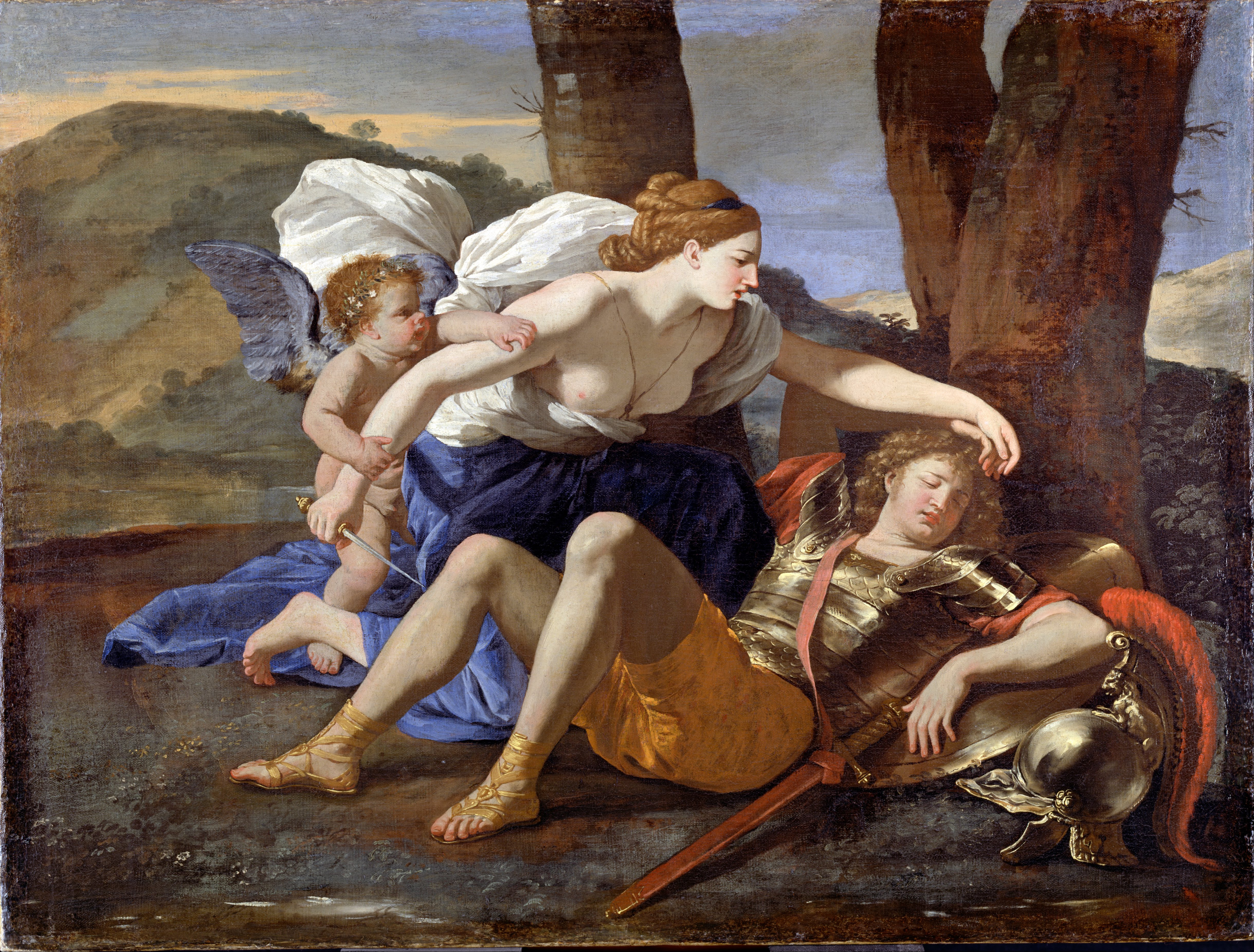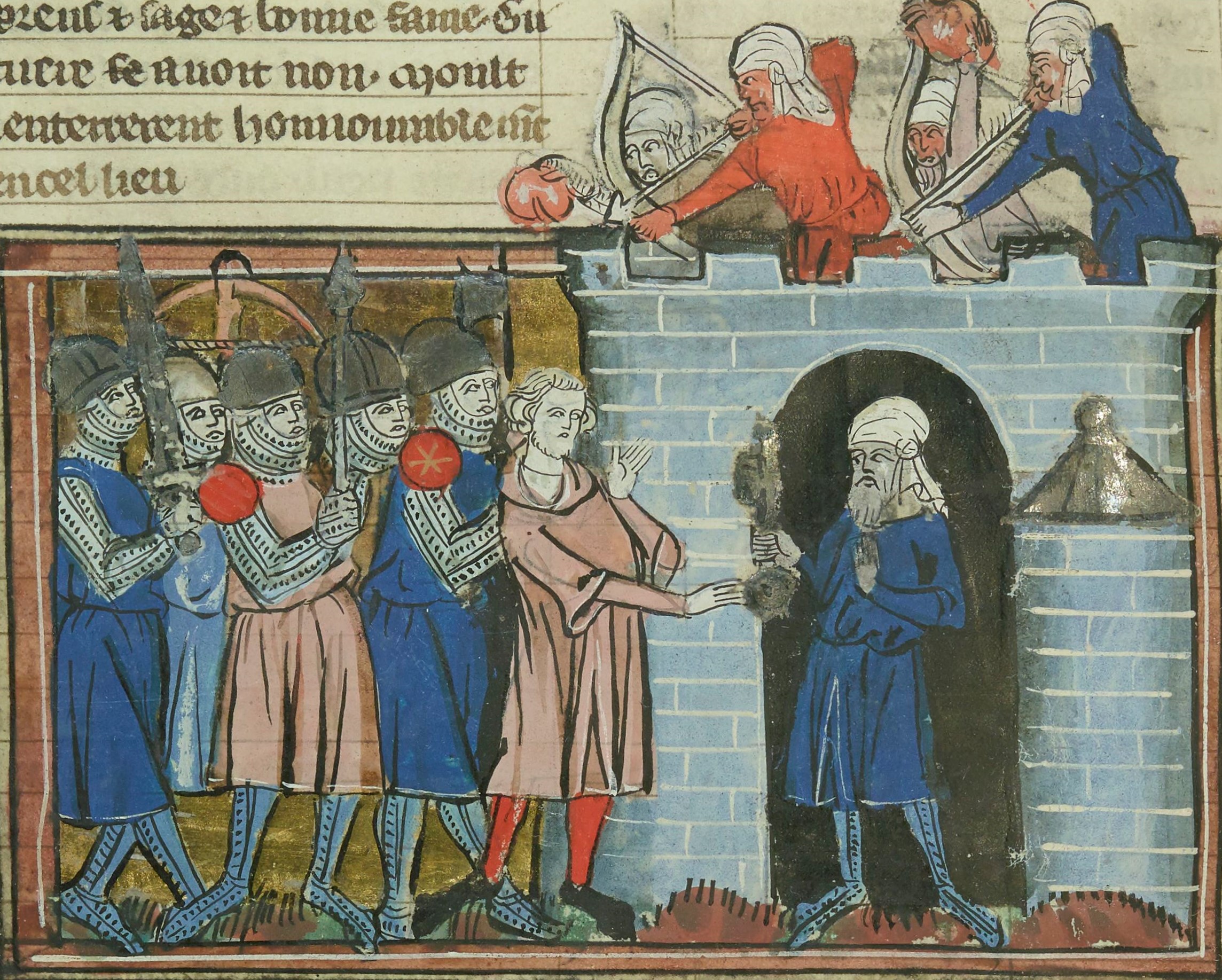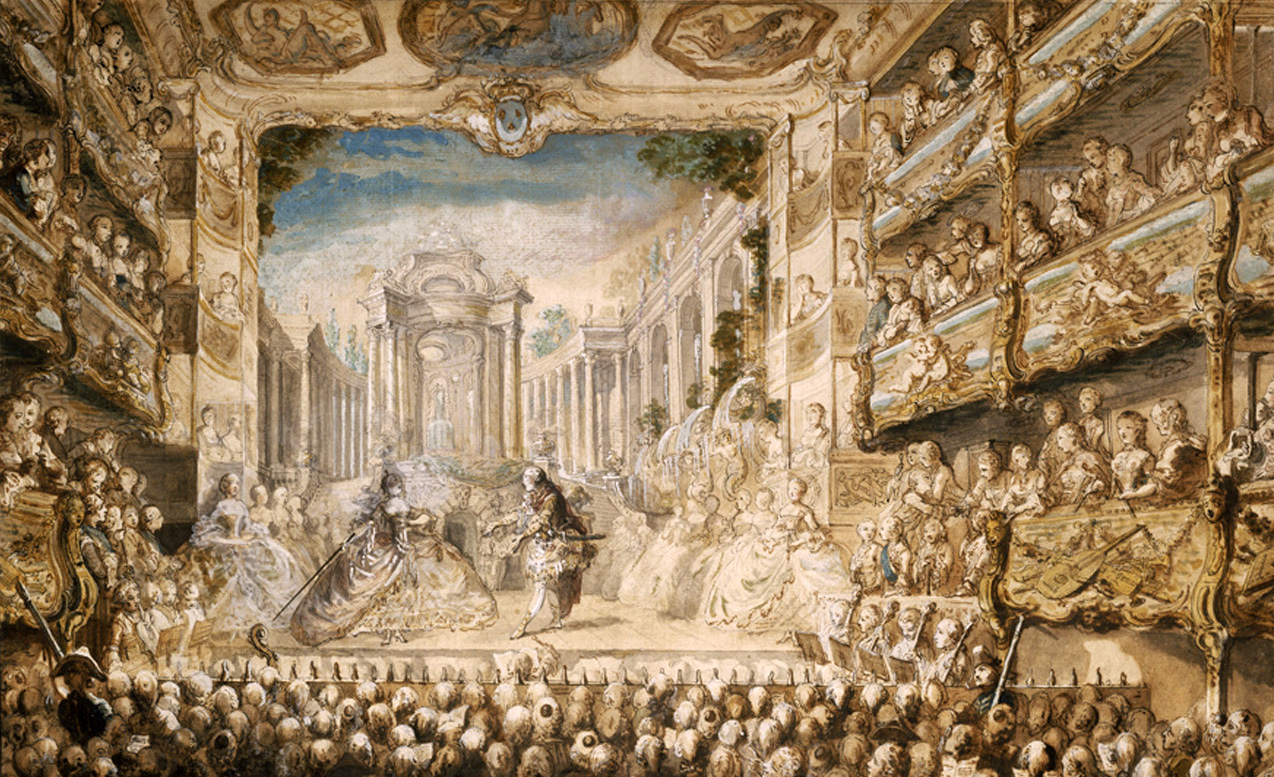|
Tancrède
''Tancrède'' is a 1702 ''tragédie en musique'' (a French opera in the lyric tragedy tradition) in a prologue and five acts by composer André Campra and librettist Antoine Danchet, based on ''Gerusalemme liberata'' by Torquato Tasso. The opera contains 23 dances in addition to the singing. It is famous for having the alleged first contralto role in French opera. (However, in modern terms it is considered more of a mezzo-soprano range.) The role was written for Julie d'Aubigny, known as 'La Maupin', the most colorful singer of this era.The part of Clorinde is notated in the soprano cleforiginal score, p. 71, but, although it never descends below d′, tradition has it that it was the first major ''bas-dessus'' (contralto) role in the French opera history (Sadie, Julie Anne, ''Maupin'', in Sadie, Stanley (ed), ''op. cit.'', III, p. 274). It's also notable for the unusual choice of three low-lying voices for the main male parts. Performance history ''Tancrède'' was first perfo ... [...More Info...] [...Related Items...] OR: [Wikipedia] [Google] [Baidu] |
Gerusalemme Liberata
''Jerusalem Delivered'', also known as ''The Liberation of Jerusalem'' ( it, La Gerusalemme liberata ; ), is an epic poem by the Italian poet Torquato Tasso, first published in 1581, that tells a largely mythified version of the First Crusade in which Christian knights, led by Godfrey of Bouillon, battle Muslims in order to take Jerusalem. Tasso began work on the poem in the mid-1560s. Originally, it bore the title ''Il Goffredo''. It was completed in April, 1575 and that summer the poet read his work to Duke Alfonso of Ferrara and Lucrezia, Duchess of Urbino. A pirate edition of 14 cantos from the poem appeared in Venice in 1580. The first complete editions of ''Gerusalemme liberata'' were published in Parma and Ferrara in 1581. Tasso's choice of subject matter, an actual historic conflict between Christians and Muslims (albeit with fantastical elements added), had a historical grounding and created compositional implications (the narrative subject matter had a fixed en ... [...More Info...] [...Related Items...] OR: [Wikipedia] [Google] [Baidu] |
Tancred, Prince Of Galilee
Tancred (1075 – December 5 or December 12, 1112) was an Italo- Norman leader of the First Crusade who later became Prince of Galilee and regent of the Principality of Antioch. Tancred came from the house of Hauteville and was the great-grandson of Norman lord Tancred of Hauteville. Biography Early life Tancred was a son of Emma of Hauteville and Odo the Good Marquis. His maternal grandparents were Robert Guiscard and Guiscard's first wife Alberada of Buonalbergo. Emma was also a sister of Bohemond I of Antioch. First Crusade In 1096, Tancred joined his maternal uncle Bohemond on the First Crusade, and the two made their way to Constantinople. There, he was pressured to swear an oath to Byzantine Emperor Alexius I Comnenus, promising to give back any conquered land to the Byzantine Empire. Although the other leaders did not intend to keep their oaths, Tancred refused to swear the oath altogether. He participated in the siege of Nicaea in 1097, but the city was taken by ... [...More Info...] [...Related Items...] OR: [Wikipedia] [Google] [Baidu] |
Tragédie En Musique
Tragédie en musique (, ''musical tragedy''), also known as tragédie lyrique (, ''lyric tragedy''), is a genre of French opera introduced by Jean-Baptiste Lully and used by his followers until the second half of the eighteenth century. Operas in this genre are usually based on stories from Classical mythology or the Italian romantic epics of Tasso and Ariosto. The stories may not necessarily have a tragic ending – in fact, most do not – but the works' atmospheres are suffused throughout with an affect of nobility and stateliness. The standard ''tragédie en musique'' has five acts. Earlier works in the genre were preceded by an allegorical prologue and, during the lifetime of Louis XIV, these generally celebrated the king's noble qualities and his prowess in war. Each of the five acts usually follows a basic pattern, opening with an aria in which one of the main characters expresses their feelings, followed by dialogue in recitative interspersed with short arias (''petits airs ... [...More Info...] [...Related Items...] OR: [Wikipedia] [Google] [Baidu] |
Julie D'Aubigny
Julie d'Aubigny (; 1673–1707), better known as Mademoiselle Maupin or La Maupin, was a French opera singer. Little is known for certain about her life; her tumultuous career and flamboyant lifestyle were the subject of gossip, rumour, and colourful stories in her own time, and inspired numerous fictional and semi-fictional portrayals afterwards. Her life loosely inspired the titular character of Théophile Gautier's 1835 novel, ''Mademoiselle de Maupin,'' in which she employs multiple disguises to seduce a young man and his mistress. Due to her relationships with men and women, some modern-day sources refer to d'Aubigny as bisexual and/or queer. Early life Julie d'Aubigny was born in 1673 pp. 350-352 archive.org/ref> to Gaston d'Aubigny, a secretary to Louis de Lorraine-Guise, comte d'Armagnac, the Master of the Horse for King Louis XIV. Her father, who trained the court pages, took care of her education teaching her academic subjects of the type given to boys but also t ... [...More Info...] [...Related Items...] OR: [Wikipedia] [Google] [Baidu] |
French-language Operas
French opera is one of Europe's most important operatic traditions, containing works by composers of the stature of Rameau, Berlioz, Gounod, Bizet, Massenet, Debussy, Ravel, Poulenc and Messiaen. Many foreign-born composers have played a part in the French tradition as well, including Lully, Gluck, Salieri, Cherubini, Spontini, Meyerbeer, Rossini, Donizetti, Verdi and Offenbach. French opera began at the court of Louis XIV of France with Jean-Baptiste Lully's '' Cadmus et Hermione'' (1673), although there had been various experiments with the form before that, most notably '' Pomone'' by Robert Cambert. Lully and his librettist Quinault created '' tragédie en musique'', a form in which dance music and choral writing were particularly prominent. Lully's most important successor was Rameau. After Rameau's death, the German Gluck was persuaded to produce six operas for the Parisian stage in the 1770s. They show the influence of Rameau, but simplified and with ... [...More Info...] [...Related Items...] OR: [Wikipedia] [Google] [Baidu] |
Gabriel-Vincent Thévenard
Gabriel-Vincent Thévenard (10 August 1669 – 24 August 1741) was a French operatic baritone (''basse taille''). Thévenard was born at Orléans or possibly Paris. Arriving in Paris in 1690, he studied under the composer André Cardinal Destouches and went on to become a member of the Académie Royale de Musique. He was notable for playing tragic roles that made use of his skill at declamatory recitatives. He appeared in over 80 tragédies en musique and opéras ballet before finally retiring in 1729. He died in Paris. Roles created *Apollon/Vertumne/l'Automne in Pascal Colasse et Louis Lully's ''Ballet des Saisons'' (Paris, 1695) *Jupiter/Hylas in Destouches's ''Issé'' (Fontainebleau, 1697) *Silvandre/Zuliman in André Campra's L'Europe galante (Paris, 1697) *The title role in Destouches's ''Amadis de Grèce'' (Paris, 1699) *Argapise in Destouches's ''Marthesie, première reine des Amazones'' (Paris, 1699) *Pygmalion in Michel de la Barre's ''Le triomphe des art ... [...More Info...] [...Related Items...] OR: [Wikipedia] [Google] [Baidu] |
Charles Hardouin
Charles Hardouin (1694 in Brittany, fl. Paris – 1718) was a French operatic baritone (''basse taille''). Beginning his career as a cathedral singer, Hardouin was engaged by the Paris Opéra as a principal singer around 1693–1694, though from 1697 onwards he was eclipsed by the more powerful Gabriel-Vincent Thévenard. He was still singing in 1718 when he was acclaimed as Poliphème in Lully's '' Acis et Galatée''. Roles created *The grand priest in Destouches's '' Issé'' (Paris, 1697) *Mars in Desmarets' '' Vénus et Adonis'' (Paris, 1697) *Argante in André Campra's '' Tancrède'' (Paris, 1702) *Cadmus in Marin Marais's '' Sémélé'' (Paris, 1709) *Filindo/Héraclite in Campra's '' Les fêtes vénitiennes'' (Paris, 1710) *Eole/Arbas in Campra's '' Idoménée'' (Paris, 1712) Sources *Weller, Philip (1992), 'Hardouin' in ''The New Grove Dictionary of Opera ''The New Grove Dictionary of Opera'' is an encyclopedia of opera, considered to be one of the best general ... [...More Info...] [...Related Items...] OR: [Wikipedia] [Google] [Baidu] |
André Campra
André Campra (; baptized 4 December 1660 – 29 June 1744) was a French composer and conductor of the Baroque era. The leading French opera composer in the period between Jean-Baptiste Lully and Jean-Philippe Rameau, Campra wrote several '' tragédies en musique'' and ''opéra-ballets'' that were extremely well received. He also wrote three books of cantatas as well as religious music, including a requiem. Biography Campra was the son of Giovanni Francesco Campra, a surgeon and violinist from Graglia, Italy, and Louise Fabry, from Aix-en-Provence. His father was his first music teacher. He was baptised on 4 December 1660 in the Église de la Madeleine in Aix. He became a choirboy in the Cathédrale Saint-Sauveur there in 1674 and commenced ecclesiastical studies four years later. He was reprimanded by his superiors in 1681 for having taken part in theatrical performances without permission, but was nevertheless made a chaplain on 27 May of that year. He served as ''maître de ... [...More Info...] [...Related Items...] OR: [Wikipedia] [Google] [Baidu] |
Contralto
A contralto () is a type of classical female singing voice whose vocal range is the lowest female voice type. The contralto's vocal range is fairly rare; similar to the mezzo-soprano, and almost identical to that of a countertenor, typically between the F below middle C (F3 in scientific pitch notation) to the second F above middle C (F5), although, at the extremes, some voices can reach the D below middle C (D3) or the second B above middle C (B5). The contralto voice type is generally divided into the coloratura, lyric, and dramatic contralto. History "Contralto" is primarily meaningful only in reference to classical and operatic singing, as other traditions lack a comparable system of vocal categorization. The term "contralto" is only applied to female singers; men singing in a similar range are called " countertenors". The Italian terms "contralto" and " alto" are not synonymous, "alto" technically denoting a specific vocal range in choral singing without regard to ... [...More Info...] [...Related Items...] OR: [Wikipedia] [Google] [Baidu] |
Antoine Danchet
Antoine Danchet (7 September 1671 – 21 February 1748) was a French playwright, librettist and dramatic poet. Biography Danchet was born in Riom, in the Auvergne, France. Having been a professor of rhetoric at Chartres and then a tutor at Paris, Danchet gave up teaching to write for the theatre. He wrote some opera libretti which, set to music by André Campra, met with success. By contrast, his tragedies, mediocre imitations of Racine, almost all failed. He died in Paris. An associate member of the Académie des inscriptions et belles-lettres from 1705, he was elected to the Académie française in 1712 thanks to the patronage of Mesdames de Ferriol et de Tencin. Voltaire François-Marie Arouet (; 21 November 169430 May 1778) was a French Enlightenment writer, historian, and philosopher. Known by his '' nom de plume'' M. de Voltaire (; also ; ), he was famous for his wit, and his criticism of Christianity—es ... wrote an epigram about him stating that his membership ... [...More Info...] [...Related Items...] OR: [Wikipedia] [Google] [Baidu] |
André Campra
André Campra (; baptized 4 December 1660 – 29 June 1744) was a French composer and conductor of the Baroque era. The leading French opera composer in the period between Jean-Baptiste Lully and Jean-Philippe Rameau, Campra wrote several '' tragédies en musique'' and ''opéra-ballets'' that were extremely well received. He also wrote three books of cantatas as well as religious music, including a requiem. Biography Campra was the son of Giovanni Francesco Campra, a surgeon and violinist from Graglia, Italy, and Louise Fabry, from Aix-en-Provence. His father was his first music teacher. He was baptised on 4 December 1660 in the Église de la Madeleine in Aix. He became a choirboy in the Cathédrale Saint-Sauveur there in 1674 and commenced ecclesiastical studies four years later. He was reprimanded by his superiors in 1681 for having taken part in theatrical performances without permission, but was nevertheless made a chaplain on 27 May of that year. He served as ''maître de ... [...More Info...] [...Related Items...] OR: [Wikipedia] [Google] [Baidu] |
French Opera
French opera is one of Europe's most important operatic traditions, containing works by composers of the stature of Rameau, Berlioz, Gounod, Bizet, Massenet, Debussy, Ravel, Poulenc and Messiaen. Many foreign-born composers have played a part in the French tradition as well, including Lully, Gluck, Salieri, Cherubini, Spontini, Meyerbeer, Rossini, Donizetti, Verdi and Offenbach. French opera began at the court of Louis XIV of France with Jean-Baptiste Lully's ''Cadmus et Hermione'' (1673), although there had been various experiments with the form before that, most notably '' Pomone'' by Robert Cambert. Lully and his librettist Quinault created ''tragédie en musique'', a form in which dance music and choral writing were particularly prominent. Lully's most important successor was Rameau. After Rameau's death, the German Gluck was persuaded to produce six operas for the Parisian stage in the 1770s. They show the influence of Rameau, but simplified and with greater focus on ... [...More Info...] [...Related Items...] OR: [Wikipedia] [Google] [Baidu] |



.jpg)

